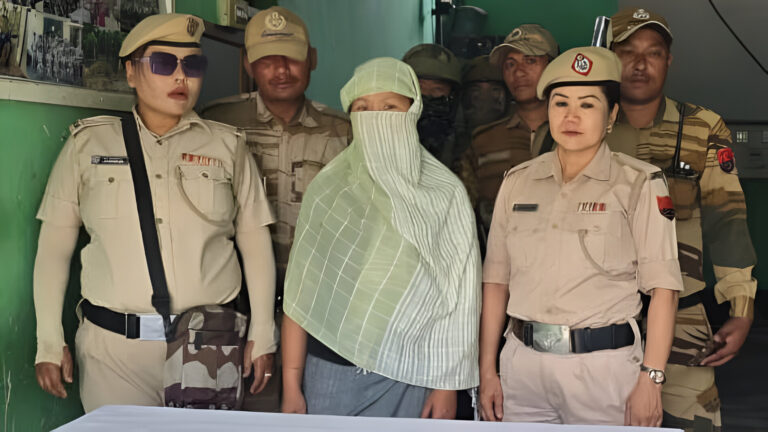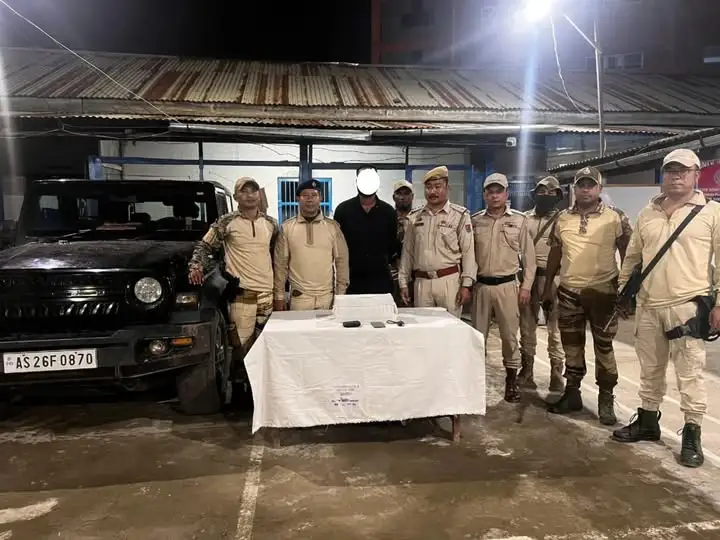Holding Civilians Hostage Is an Act of Terror: Bimol Akoijam’s Bold Stance on Violence in Manipur
Summary of the News
Bimol Akoijam, a noted political analyst and professor, recently called out the hostage situation of civilians in Manipur as an act of terror. His statement reflects the growing unrest and frequent targeting of innocent people amidst the ongoing conflicts in the region. This situation underscores the need for immediate governmental action and law enforcement intervention.
Manipur Unrest: Civilians Held Hostage as Acts of Terrorism—The Need for Accountability
Manipur, a northeastern state of India, has long been embroiled in conflict, with its complex socio-political dynamics resulting in unrest that spans decades. In this ongoing saga of violence, the latest controversy involves civilians being held hostage by armed groups. Prominent political analyst and academic Bimol Akoijam condemned this as a blatant act of terror, drawing attention to the seriousness of such actions and their implications for the state.
This article examines the context, the gravity of the situation, and the pressing need for government intervention to protect civilians in conflict zones like Manipur.
Manipur’s Enduring Conflict: A Land Divided by Tensions
The Roots of Violence: Ethnic and Political Rivalries
Manipur’s history of violence is deeply intertwined with its ethnic and political complexities. The state is home to a diverse mix of indigenous groups, including the Meitei, Naga, and Kuki communities. Over the years, these groups have had conflicts over land, political representation, and cultural identity. What began as smaller-scale conflicts quickly snowballed into larger confrontations, with militant groups often stepping in to assert their agendas.
In recent times, the conflict has taken a darker turn. Civilians, who have long been caught in the crossfire, are now being actively targeted and held hostage by armed factions. This is not just a sign of escalating violence but a dangerous precedent that further endangers the already fragile security landscape of the region.
Civilians as Pawns in a Larger Game
The abduction or forceful confinement of civilians is a tactic that has been employed in various global conflicts to exert pressure on governing authorities. Unfortunately, Manipur’s case is no different. Here, civilians are used as bargaining chips by militant groups who seek to gain leverage in negotiations with the government or rival factions. This exploitation of innocent lives has drawn sharp criticism from observers and human rights groups alike.
The most recent case, highlighted by Bimol Akoijam, reflects this disturbing trend. Civilians, who have no direct stake in the ongoing political struggles, are being pulled into the chaos against their will. Holding them hostage is not only a violation of human rights but, as Akoijam puts it, an outright act of terror.
Bimol Akoijam’s Bold Stand Against Terror
Who Is Bimol Akoijam?
Before diving into his statement, it’s essential to understand the significance of Bimol Akoijam. He is a well-respected professor, political analyst, and voice for peace in Manipur. Known for his intellectual rigor and deep understanding of the state’s socio-political issues, Akoijam’s words carry weight in both academic and public policy circles.
Over the years, he has been an advocate for conflict resolution and has often criticized both the government and militant groups for their roles in perpetuating the violence. His recent statement, labeling the hostage-taking as terrorism, is in line with his long-standing belief in human rights and the rule of law.
The Statement That Resonated
Akoijam’s declaration that holding civilians hostage is an act of terror was not just an emotional response—it was a calculated critique aimed at both the perpetrators and those in power who have allowed the situation to reach this point. By using the term “terror,” Akoijam forces the public and policymakers to recognize the severity of the issue.
He emphasizes that the abduction of innocent people is not merely a tactic of war but a form of terrorism that undermines the very fabric of society. It disrupts the peace and security that civilians are entitled to, regardless of the political or ethnic conflicts surrounding them.
The Larger Implications of Civilian Hostage Situations
Undermining Trust in the Government
Every time civilians are taken hostage, it undermines public trust in the government’s ability to maintain law and order. In Manipur, this erosion of trust has reached critical levels. The people no longer feel safe, and they increasingly view the authorities as either unwilling or incapable of protecting them.
The government’s delayed response in addressing hostage situations or ensuring the safe release of abducted individuals only exacerbates the problem. As armed groups continue to operate with impunity, the sense of lawlessness grows, leaving citizens in a perpetual state of fear.
The Psychological Toll on the Community
While the political and strategic implications of holding civilians hostage are grave, we must also consider the psychological impact on the victims and their families. Hostage situations often leave individuals scarred for life, haunted by the trauma of captivity. Communities that witness such acts also bear the psychological burden of living in fear, unsure if they or their loved ones could be the next victims.
The cumulative effect of these incidents creates an environment of distrust, anxiety, and division. The social fabric of Manipur, already fragile due to decades of conflict, risks further unraveling under the weight of such atrocities.
The Role of the Indian Government: What Needs to Be Done?
Immediate Action Required
To address the issue of civilians being held hostage, the Indian government must take immediate, decisive action. This is not a situation that can be allowed to continue unchecked. The safety of its citizens should be the top priority for any government, and in conflict zones like Manipur, this principle becomes even more critical.
Steps that need to be taken include:
- Strengthening Law Enforcement: Ensuring that the local police and military forces are adequately trained and equipped to handle hostage situations is crucial.
- Negotiation Strategies: While force may sometimes be necessary, the government should also employ skilled negotiators who can work to secure the release of hostages without escalating the violence.
- Humanitarian Support: Providing psychological and financial support to the families of hostages and the victims themselves is essential for rehabilitation.
- Long-term Conflict Resolution: The government must also address the underlying causes of the unrest in Manipur, including ethnic tensions, political representation, and economic disparities.
Collaborating with Local Communities
The government cannot solve this crisis alone. Collaboration with local communities, civil society groups, and human rights organizations is essential. By involving local leaders and stakeholders in the decision-making process, the government can gain valuable insights into the situation on the ground and work towards more effective solutions.
Conclusion: A Cry for Justice
The hostage-taking of civilians in Manipur is not just a tragic consequence of the region’s ongoing conflict—it is an act of terror that must be condemned in the strongest possible terms. Bimol Akoijam’s statement is a call to action for both the government and the public. If we allow such acts to go unpunished, we risk not only the lives of the hostages but the very future of Manipur.
Immediate action is required to secure the release of hostages and restore peace to the region. The government must step up its efforts, and the people of Manipur must continue to demand justice and accountability.
FAQs
- Why did Bimol Akoijam call the hostage situation an act of terror?
Bimol Akoijam referred to the act of holding civilians hostage as terrorism because it uses fear and violence to achieve political aims, violating human rights and disrupting peace. - What is the root cause of the unrest in Manipur?
The unrest in Manipur stems from ethnic tensions, political conflicts, and economic disparities between different communities in the state. - What are the implications of holding civilians hostage in conflict zones?
Such actions undermine trust in the government, traumatize communities, and contribute to a cycle of violence and fear. - What can the Indian government do to address this issue?
The government must strengthen law enforcement, employ skilled negotiators, and collaborate with local communities to resolve the underlying causes of conflict. - How does this situation impact the broader conflict in Manipur?
The hostage-taking of civilians escalates the conflict, deepening divisions and making it harder to achieve peace and stability in the region.




